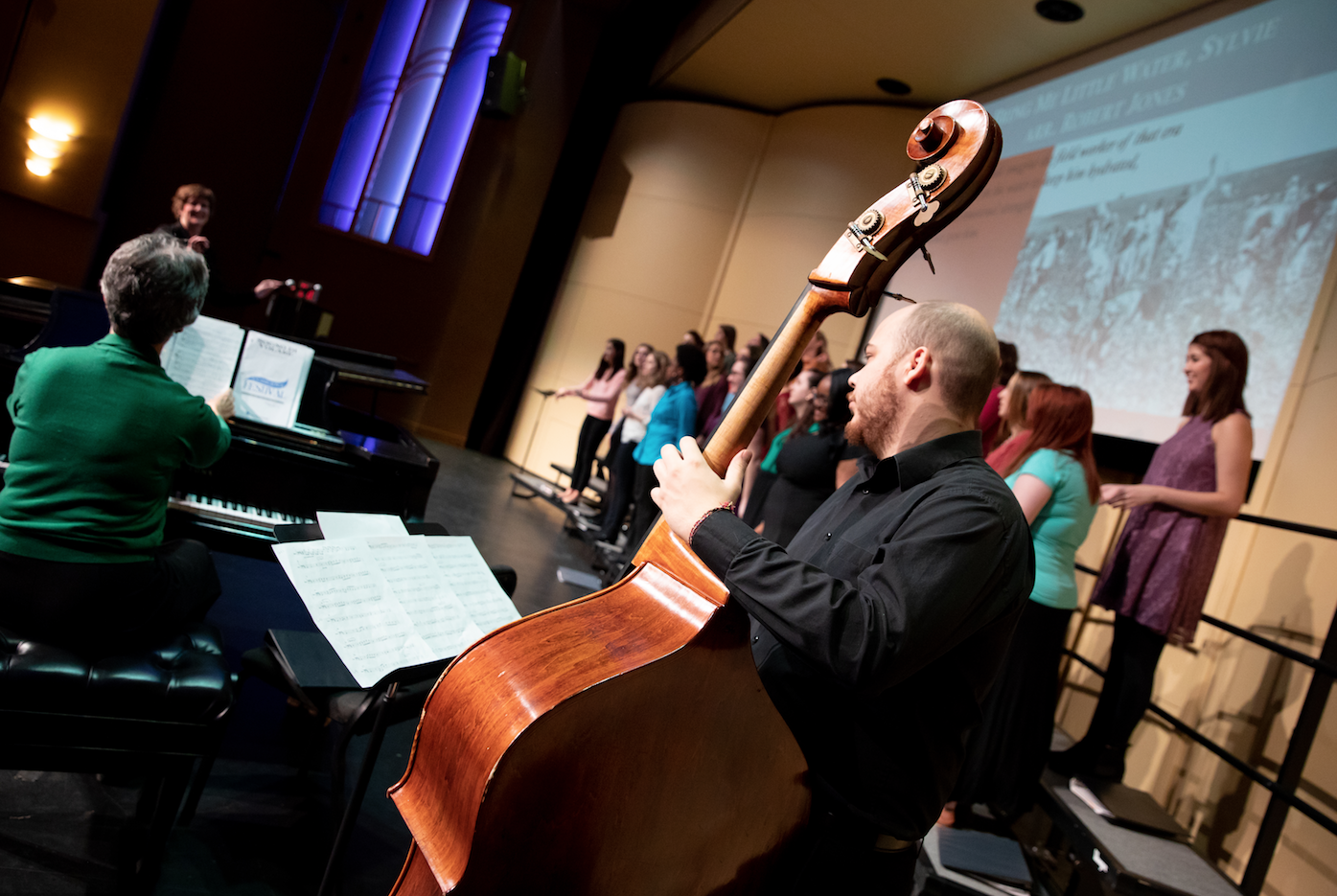There’s been an exciting development in the music department Longwood—and it’s inspired me to tell you a little about opportunities, new and existing, for your student in the music program here.
First, I am very happy to let you know that a new professor focused on stringed instruments will be joining the Longwood music faculty in the fall. I met Dr. Lauretta Werner when she was on campus during the interview process, and I thought she’d be a great fit for Longwood.
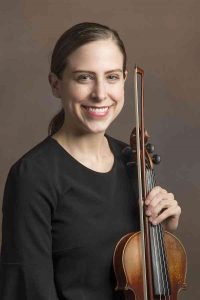
She’ll be teaching violin and viola lessons and leading a string ensemble (for students playing violin, viola, cello and bass), among other duties.
So if your student has ever mentioned wanting to learn to play the violin or viola—or wanting to improve their playing—this is their chance. Lessons are available to all students, not just music majors. A bonus is that non-music majors can take elective applied lessons in violin or another instrument to fulfill one of the requirements of Civitae, the core curriculum.
And with Longwood’s new tuition structure (students can take 12-18 hours for the same basic tuition cost), students could have room in their schedules for private lessons or a string class, for academic credit, without paying additional tuition. (There is an additional fee for private lessons, which is standard at most universities).
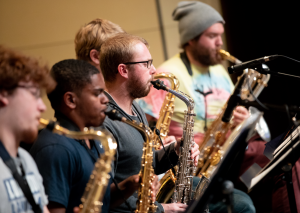
Longwood offers private music instruction in voice, piano, trumpet, French horn, tuba, trombone, clarinet, saxophone, flute, percussion and guitar, for example.
Below, Dr. Lisa Kinzer, chair of Longwood’s Department of Music, answers some additional questions about the new music faculty member, the string program and music opportunities in general at Longwood.
What other opportunities do students have to make music at Longwood?
We have several vocal ensembles, including men’s and women’s choirs and the advanced Camerata Singers, and several instrumental groups, including the jazz and percussion ensembles and the Wind Symphony. More information about our ensembles can be found on our website: http://www.longwood.edu/music/student-organizations/#panel2
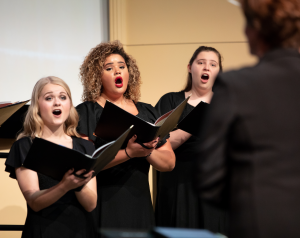
What about Stampede?
Stampede is the official Longwood University athletics band. This year’s band had more than 40 students from a wide variety of majors. The band performs at basketball games during the winter season. Anyone with previous band experience, a positive attitude and the desire to have a lot of fun is welcome to join Stampede.

How many music majors are currently enrolled?
We currently have approximately 50 music majors, over half of whom intend to pursue degrees in music education.
Are there scholarships available for music majors? Where can students find out more information about them?
Yes, many scholarships are available to music majors. We have recently been able to award small awards to non-music majors, too, to help offset fees for applied lessons. More information is available on the Longwood website: http://www.longwood.edu/music/scholarships/
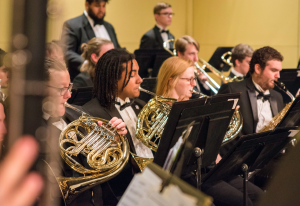
Why was Dr. Werner selected for the new faculty position?
As pointed out by the search committee, Dr. Werner’s teaching was superior and she performed expressively. She had clear musical ideas in her rehearsals and performances, collaborated well in ensemble performance, and was focused on student understanding and student success throughout the process.
What are your short-term and long-term goals for a string program at Longwood?
We’d like to see Dr. Werner working through the Longwood Center for Community Music to teach violin and viola to pre-college students to cultivate an interest and appreciation for strings in our immediate community. As interest builds and word gets out, we hope to have a full orchestra sitting on the stage of our new music building 7-10 years from now.
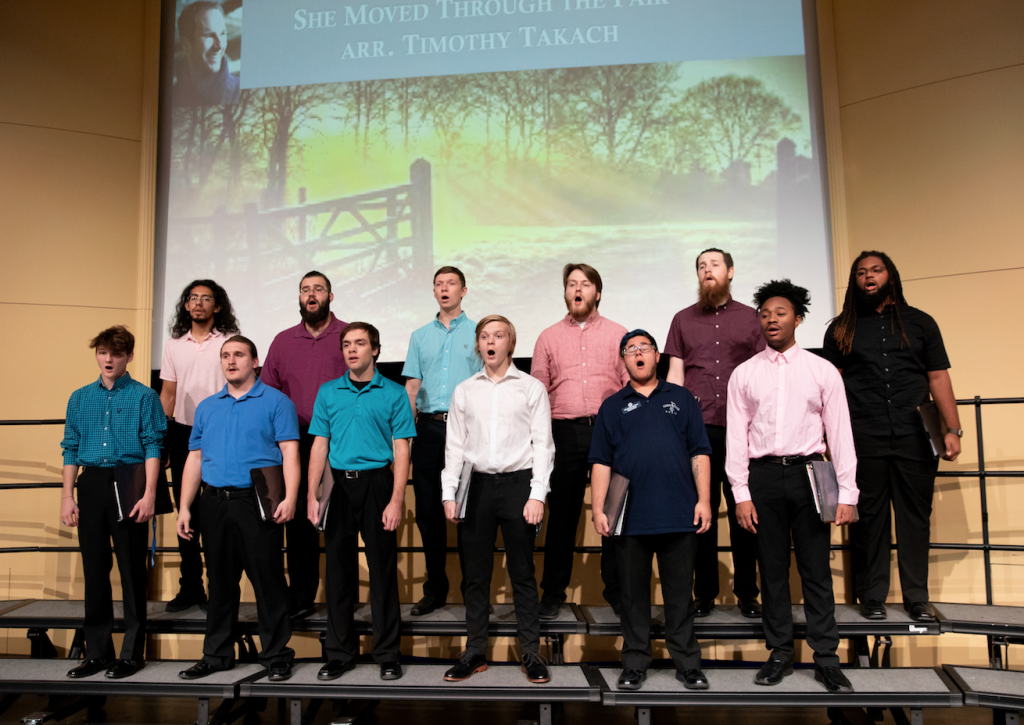
Why do you feel it’s important to start a string program here?
In our conversations, we talked about how a string program would make us a more “complete” music program. Not only do we want to attract music majors who play stringed instruments, but we want to attract the type of pianist, vocalist, etc., who wants to study in a department that offers chamber music and orchestral experiences.
Will Dr. Werner be teaching a beginning string class?
We do not currently offer a beginning string class, but this is something Dr. Werner may develop when she arrives. There would be no additional fee for this kind of class.
How does the music department contribute to Longwood and the student experience?
Students and faculty in the music department serve as ambassadors for Longwood through our numerous performances, both locally and throughout the state and region. Here on campus, we truly are a department of service, providing music for events such as convocation, commencement and the Holiday Dinner, which brings students and their parents back to campus years after students have graduated. Alumni also return to campus as they bring their own students here for events such as Longwood Honor Band and Honor Choir.

